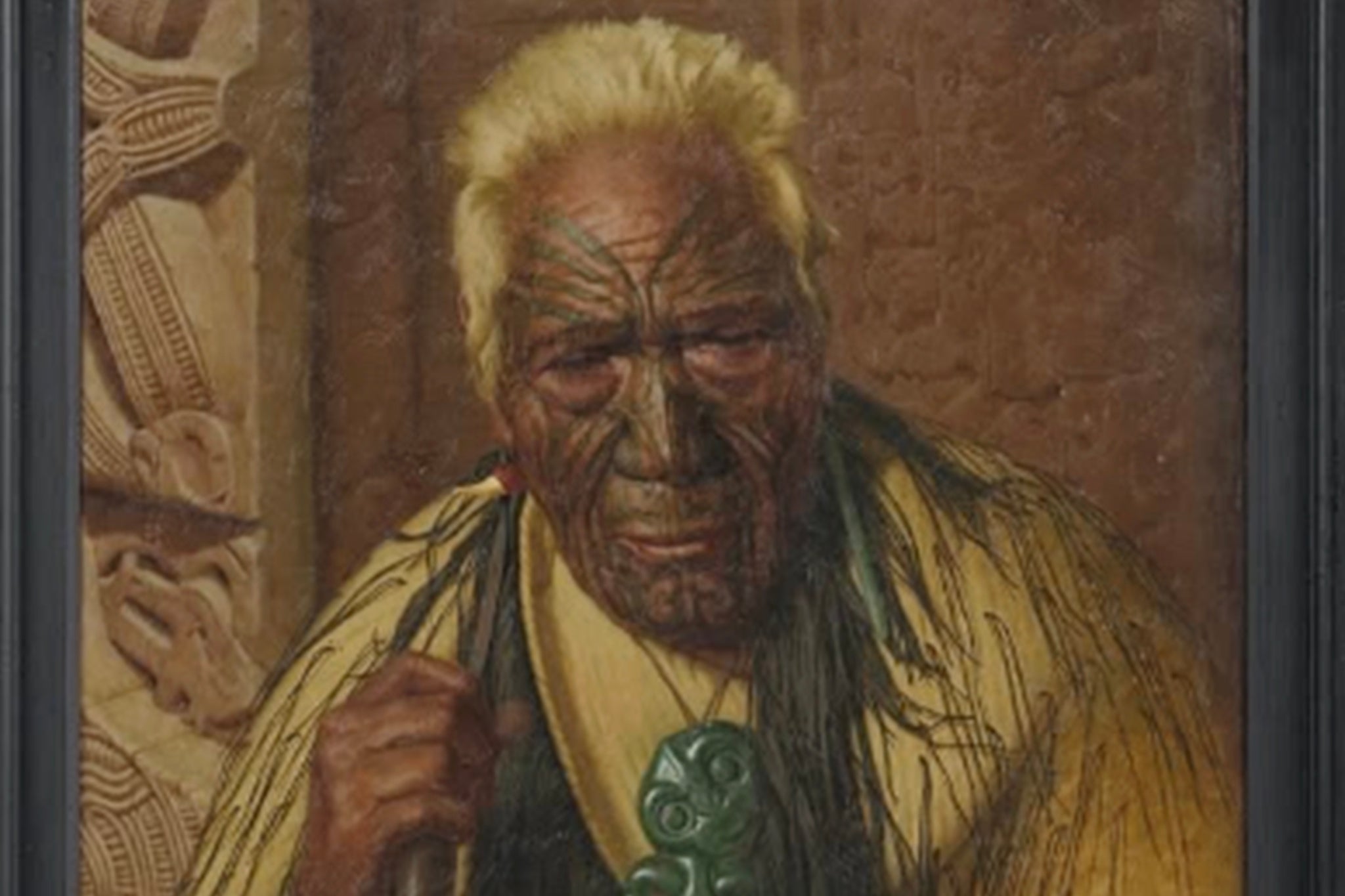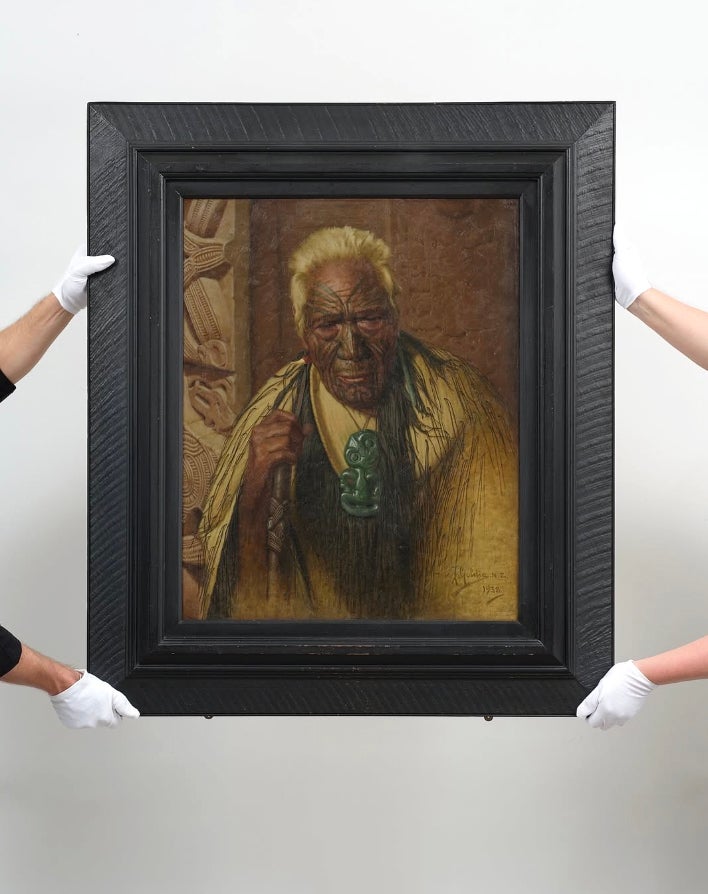Painting of Māori elder sells for £1.7m and becomes most valuable artwork in New Zealand history
‘Thoughts of a Tohunga’ by Charles Frederick Goldie has been called the artist’s best work by many critics

Your support helps us to tell the story
From reproductive rights to climate change to Big Tech, The Independent is on the ground when the story is developing. Whether it's investigating the financials of Elon Musk's pro-Trump PAC or producing our latest documentary, 'The A Word', which shines a light on the American women fighting for reproductive rights, we know how important it is to parse out the facts from the messaging.
At such a critical moment in US history, we need reporters on the ground. Your donation allows us to keep sending journalists to speak to both sides of the story.
The Independent is trusted by Americans across the entire political spectrum. And unlike many other quality news outlets, we choose not to lock Americans out of our reporting and analysis with paywalls. We believe quality journalism should be available to everyone, paid for by those who can afford it.
Your support makes all the difference.An oil painting of a Māori elder by New Zealand painter Charles Frederick Goldie was sold at an auction for a record £1.7m, becoming the most valuable work in New Zealand’s art history.
Thoughts of a Tohunga is a portrait of Wharekauri Tahuna, a priest believed to be one of the last tattooed men of his generation. It was painted by Goldie in 1938, and has been called his best work by several art critics and experts.
“In 2016 we sold a Goldie for $1,175,000 which was the first Goldie to sell for more than $1m. Since then we have sold 15 Goldies for more than $1m,” said Richard Thomson, International Art Centre director.
“Goldie is probably the most sought-after painter of Māori elders because of his artistic skill and ability, particularly with Māori subjects. His works are quite simply unmatched. He regularly brings record prices and this painting is now one of his most sought-after works. It is the finest portrait of a Māori elder we have seen in the many years we have been handling Goldie paintings.
“We had an incredibly wide interest in the painting before it was even included in our catalogue,” Thomson said.
The painting, sold for NZ$3.75m (£1.7m), was first shown in Paris, France, in 1939 and shows a kaumātua (tribe elder) with an elaborate moko, which is the traditional Maori system of tattooing, and wearing a large pounamu tiki (a carved human figure made usually from New Zealand greenstone) pendant around his neck, according to The New Zealand Herald.

Purchased by an undisclosed buyer, Thoughts of a Tohunga’s auction price has made it the most valuable Māori portrait in New Zealand art history, and is also the highest amount paid for any Goldie work.
Wharekauri Tahuna was believed to be 103 when he died, and was one of Goldie’s favourite subjects to paint.
News of the sale comes amid racial tensions in New Zealand after a law that would redefine New Zealand’s founding treaty between the British Crown and Māori chiefs was proposed by the government.
New Zealand’s parliament was temporarily halted by Māori politicians performing a haka in protest earlier this month.
Introduced by the libertarian ACT New Zealand party, the bill aims to narrow the interpretation of the Treaty of Waitangi, a foundational agreement signed in 1840 between the British Crown and the Maori chiefs.
Over 35,000 people marched on the streets in New Zealand’s capital Wellington to protest against the bill last week, following a Māori tradition called hīkoi, or walking, to bring attention to breaches of the 1840 Treaty of Waitangi.
Join our commenting forum
Join thought-provoking conversations, follow other Independent readers and see their replies
Comments